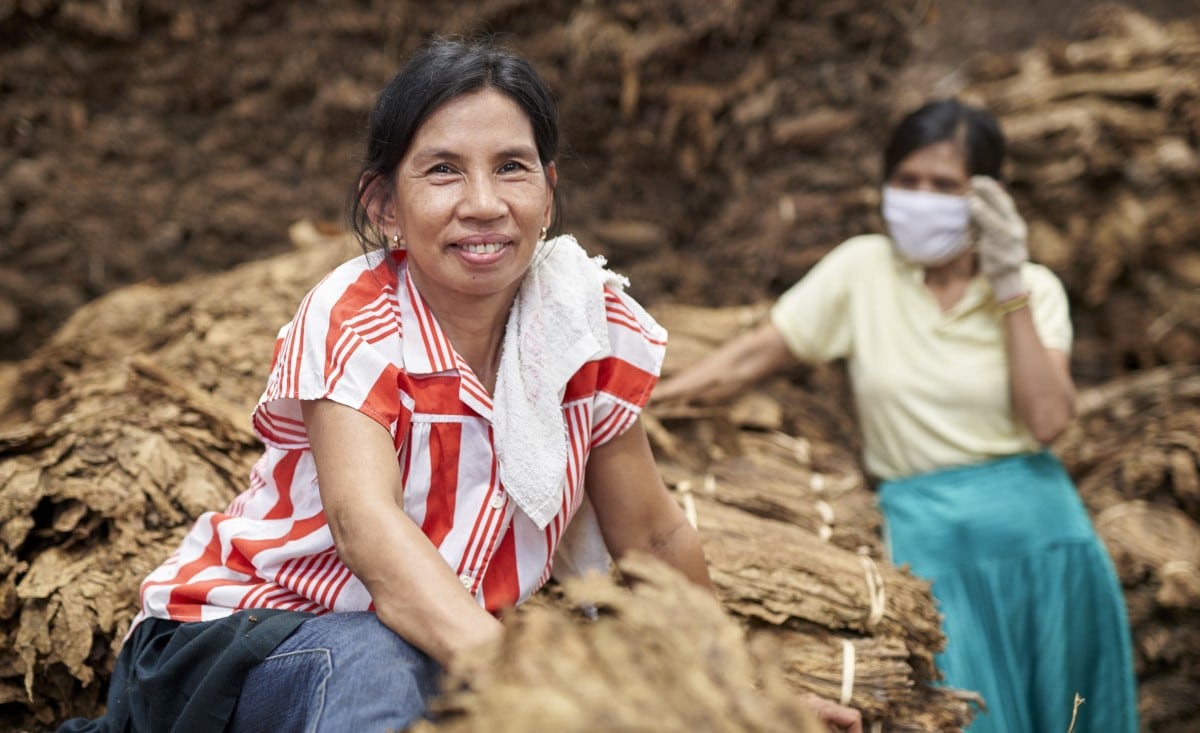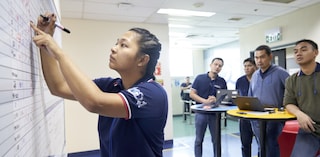Building on our pilot in Mexico in 2018, we conducted a second HRIA in the Philippines in 2019. The exercise covered our head office, two factories (Batangasand Marikina), one sales office (Marikina), suppliers, and surrounding communities. The scope of the HRIA was broadened to also include our tobacco supply chain and our marketing practices, better reflecting the operating context and issues at stake across our value chain.
The assessment began early in 2019 with desktop research, stakeholder mapping, training, and awareness-raising related to the expanded scope of the exercise. Learning from our experience in Mexico the previous year, our preparation in the Philippines included deeper engagement with management teams prior to the start of the exercise, incorporating training on human rights and the assessment process.
To open the on-site assessment, our local affiliate PMFTC organized a launch event that welcomed all employees, local NGOs, and government representatives to discuss human rights and the roles that companies and governments have to play in this area. Several in-country visits and interviews followed. Our human rights consultant, Article One, interviewed not only employees and contracted workers, but also our tobacco supplier, farmers, and functional experts. The consultant interviewed, individually or through focus groups, a representative sample of women and men across age groups and functions, including unionized employees of the Marikina factory. Our assessment revealed several positive developments:
- consistent mentions of above average salaries and industry-leading benefits, training, development, and support for nursing mothers;
- a strong culture of safety and security among employees and contractors that extends to their families and communities;
- strong awareness of available grievance-raising channels and PMI’s “Speak Up” culture;
- a strong commitment to diversity and inclusion, with all feeling welcome and supported;
- good level of knowledge among sales teams of PMI’s Marketing Code; and
- a leaf supplier fully committed to PMI’s ALP program, with a growing awareness among farmers.
In addition to these positive elements, we noted areas in need of improvement. During the focus group discussions, sales employees – especially women – raised concerns about risks to their personal safety while working in locations with high crime rates. To address these risks, we will undertake mitigating measures, including a review of route assignments in consultation with the sales staff, and ensure that two employees are teamed up when working in identified high-risk areas. The risk for sales employees of being involved in hold-ups also exists. In addition to all necessary security measures applicable, employees will be provided with appropriate counseling. Employees also raised concerns about their long working hours coupled with long commute times. In response, local management will conduct a survey of working hours and driving routes and review relevant compensation schemes.
This iterative process, called ‘Human Rights Impact Assessment,’ requires us to engage with all stakeholders to whom we need to listen and from whom we need to learn. Listening to practitioners and those that confront the challenges is the first ingredient in transformation. And this transformation journey that our company is undergoing is not without new challenges or impacts on human rights – in our operations, supply chain, or even our external engagements. As an industry leader, we need to be humble and open to learning from others’ lessons, build on what works, and together plug the gaps. Together we should reinforce the key message that respect for human rights is possible. It is our responsibility and a major contribution of our business to realizing sustainable development.
Despite legal requirements regarding the minimum age for the sale of tobacco products, as well as awareness-raising materials and other measures, sales employees have raised concerns about “sari-sari” small neighborhood stores, which may not always comply with legal age limits. Although PMI neither owns nor has control over these retail points of sale, we recognize that we need to further raise awareness of our own standards, which align with local legislation, and work with these retailers to ensure they do not sell to underage customers. To this end, the market will roll out additional activities with retailers based on PMI’s global youth access prevention program.
Our consultant also raised concerns that the wages of security and janitorial contractors, although fully compliant with legal requirements, may fall below the level of a living wage. We were advised to encourage our service providers to consider implementing performance-based wage increases as an incentive.
Based on interviews with farmer representatives and tobacco farmers, our consultant recognized PMI’s commitment to the ALP program and the progress that has been made in its implementation. This includes improvements in growing and working practices, and the overall performance of our supplier in the Philippines. However, farmer representatives also stated that, while the ALP program had improved compliance with personal protective equipment (PPE) requirements, some farmers still refuse to wear safety equipment, potentially leading to green tobacco sickness and other health issues. Providing safe working conditions to both farmers and workers is a key element of our ALP program. Our supplier will continue ensuring the appropriate PPE is available, while raising awareness of safety to encourage behavior change in PPE use. Overall this exercise raised awareness of human rights at the country level and further developed employee competencies and skills to address potential human rights issues. From a corporate perspective, we aim to use local learnings to enhance our global understanding, training, and management of human rights impacts.
Other case studies
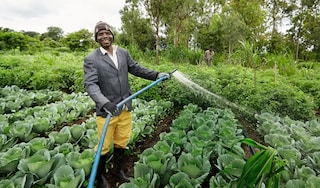
Working towards crop diversification
Read more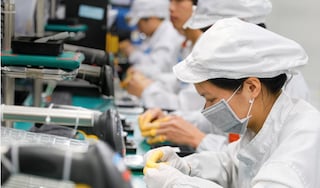
Social impact in our electronics supply chain
Read more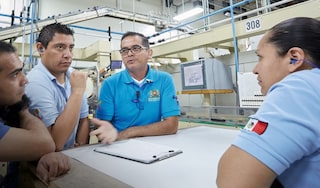
Human rights due diligence in Mexico

